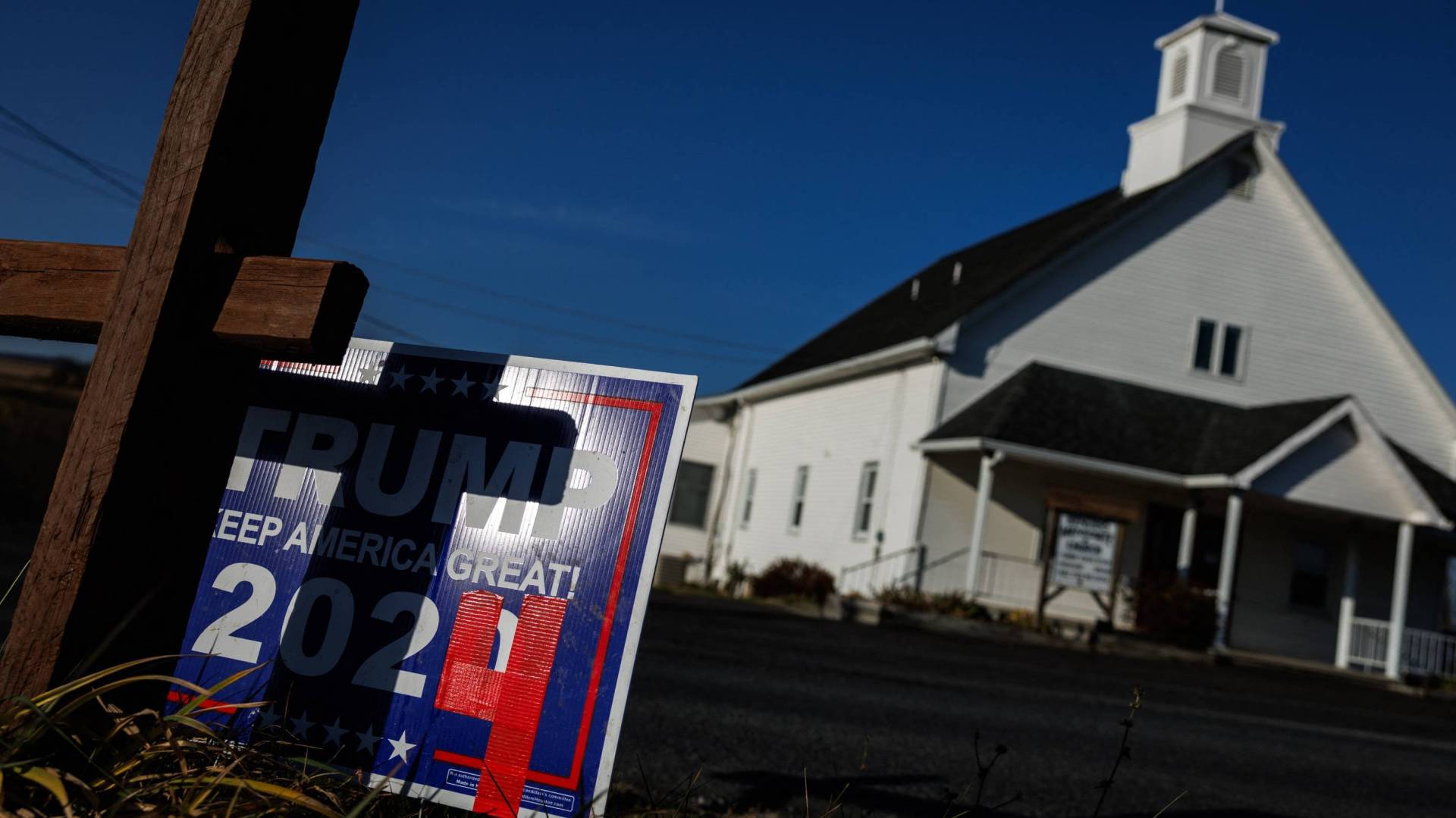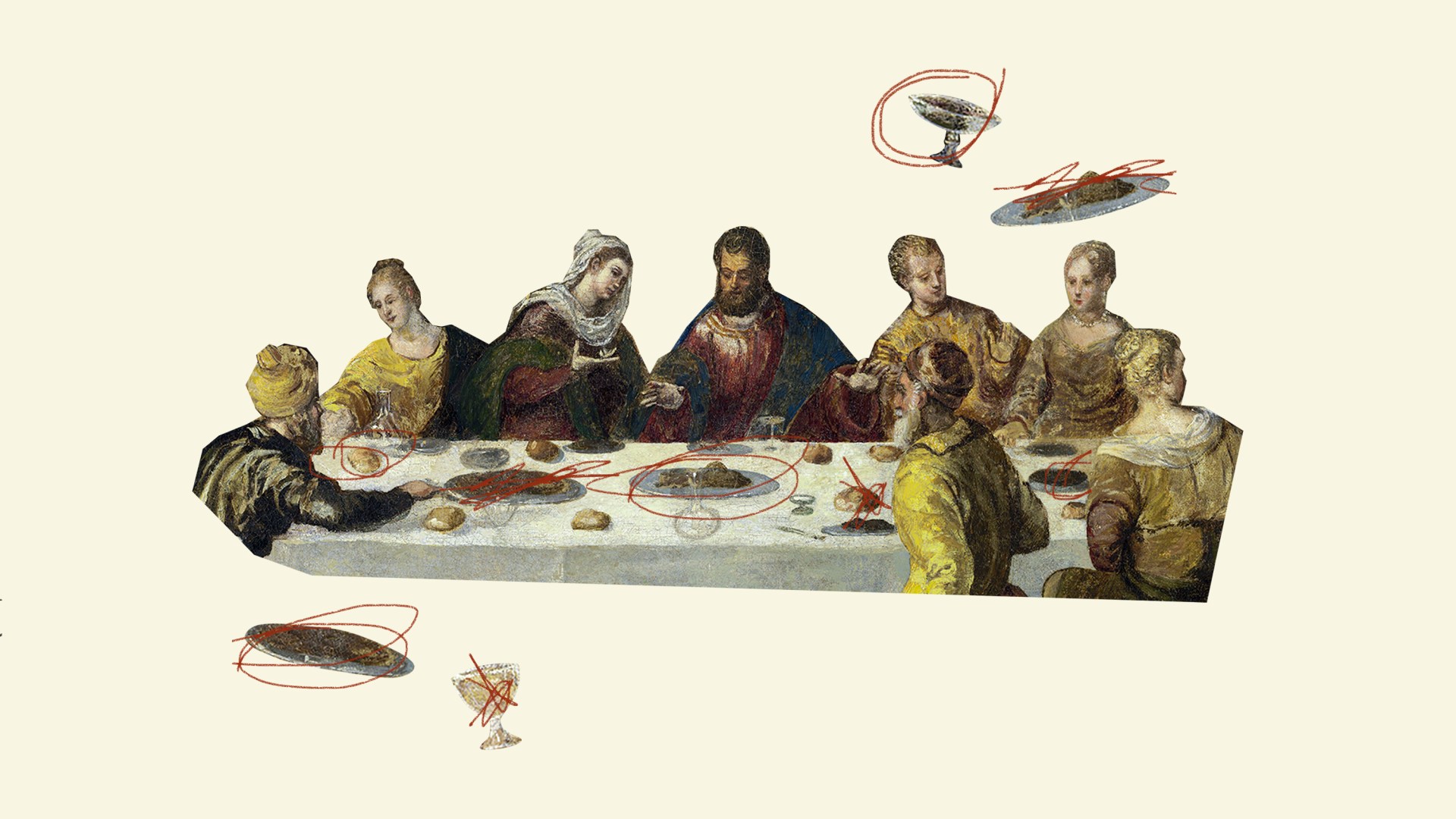I’ll never forget the beautiful Sunday afternoon when we waited in line at our local library for early voting. It was the first year we took our kids into the voting booth. They weren’t initially thrilled to be there, but as we got closer to the front, we could feel it all building: anticipation, excitement, hope.
At ages 9 and 11, my girls watched my husband and me vote for the one we believed would be the best-qualified president of the United States, Vice President Kamala Harris. And now they witness the grief that comes from knowing that the candidate we championed has lost the race. They watched as our faces fell when we heard the results. They experienced our sorrow, not only for this loss but also for the fear of what might happen in the coming days and years.
With former president Donald Trump as our next president, I am acutely aware of the darkness that lingers in the shadows of his victory. Our country is still deeply politically divided, and while many of his supporters celebrate his reelection, I fear the deepening of this divide, one that has potential to cause a great chasm between me and those who voted for him—many of them brothers and sisters in Christ.
But as troubled as I am over this outcome, I am also aware that more than the presidency is at stake. Our country has proven its allegiances, and though I am upset and worried because Trump was reelected, I’m also aware of the relief and excitement that many Trump supporters are experiencing.
These different reactions are unavoidable, but despising our political rivals is not. Even my younger daughter has noticed our fractured public life. She has classmates echoing their parents’ declarations that people who vote for Trump are “stupid”—or that those who vote for Harris are “not Christian.”
As a parent, I always expect to have conversations with my children about how to live in love. But this election season, we’ve had to expand those talks into lessons about how our children can reject this kind of demonization and protect themselves from those who may demonize them or my husband and me as their parents.
It should not be this way. I’m not fazed by political celebration over a win or disappointment during loss, which is a normal part of any election. But I am concerned that there are too few spaces for those who weep to be in durable community with those who rejoice. The act of celebrating alongside those who grieve—and vice versa—is a source of necessary balance, a needed check on our impulses to be thoughtless in our happiness or bitter in our grief. For believers, that balance helps keep politics in perspective, subordinate to Jesus.
This need to be together in our rejoicing and weeping is not just a political challenge. It also follows a biblical pattern that we see in the story of the Israelites building the foundation for the second temple in Ezra 3. Those who wept at the loss of what had been were there together with those who rejoiced at the possibility of what could be. It became impossible to “distinguish the sound of the shouts of joy from the sound of weeping,” Ezra records, “because the people made so much noise. And the sound was heard far away” (v. 13).
This brief note about the mixture of triumph and despair is important because it reminds us that regardless of how they felt, the people remained together. Their covenant with God required that they learn to work together amid their differences, not simply for the sake of unity among themselves but for unity against outside adversaries. This passage should remind us that we too have a need for national unity amid our differences, that unity is necessary to preserve our freedom and democracy.
And while they differed in weeping and rejoicing, the crowd in Ezra 3 was united in praise and trust of God. “He is good; his love toward Israel endures forever,” they sang together (v. 11). American Christians of all political affiliations must keep this higher truth in mind in the weeks ahead.
For those of us who are unhappy with this result, let me encourage you not to despair. I am praying for you, and I hope you will pray for me—and for our next president “and all those in authority, that we may live peaceful and quiet lives in all godliness and holiness” (1 Tim. 2:2). Regardless of who leads our nation, we can seek God’s wisdom for how we can continue to “seek the peace and prosperity of the city” even when we feel we are in exile (Jer. 29:7).
For those who are happy with the outcome, let Ezra’s story remind you to be firm in your demands of accountability and justice from the administration you elected. Remember that your earthly allegiances must never supersede your faithfulness to God. And remember to pray for our next president, his cabinet, our nation, ourselves, and your fellow Christians who are worried about what comes next.
This week, I will take time to mourn with my daughters in what feels to me like a true loss. But I will do so alongside my neighbors and many Christian brothers and sisters who are reassured or outright joyful that President-elect Trump won. And I will praise God alongside them, too, for he is still good, and his love still endures forever.
Nicole Massie Martin is the chief impact officer at Christianity Today.



























































